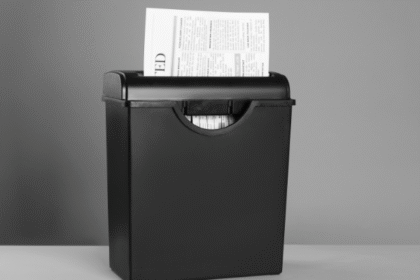Preparing for IB Economics exams can feel overwhelming. With a syllabus packed with theoretical frameworks, real-world application, diagrams, and evaluative writing, students often struggle to revise efficiently. That’s where IB Economics revision notes come in.
Whether you’re studying at Standard Level (SL) or Higher Level (HL), revision notes help consolidate your learning, provide a structured recap, and give you confidence heading into the exams. In this guide, we’ll break down what makes effective IB Economics revision notes, how to use them strategically, and how they can lead you to top grades.
Why You Need IB Economics Revision Notes
IB Economics isn’t just about memorizing definitions or drawing diagrams. It requires:
-
Deep conceptual understanding
-
Application to real-life examples
-
Evaluative thinking
-
Structured essay writing
During revision, it’s nearly impossible to go back to every textbook chapter, class handout, or video lecture. That’s why streamlined, concise revision notes are your best tool. They:
-
Save time by summarizing key ideas clearly
-
Act as a roadmap during exam review
-
Focus your attention on what matters most
-
Make practice more efficient and targeted
-
Improve memory retention through structured learning
What Should Good IB Economics Revision Notes Include?
Creating your own or using expertly curated IB Economics revision notes? Either way, make sure they include the following components:
1. Condensed Syllabus Coverage
A good set of notes should cover all four main topics of the IB Economics syllabus:
-
Microeconomics
-
Macroeconomics
-
International Economics
-
Development Economics
Each section should be summarized concisely with focus on key definitions, diagrams, models, and theories.
2. Examinable Definitions
Many Paper 1 questions begin with “Define…”. Make sure your notes contain accurate IB-specific definitions for terms like GDP, opportunity cost, price elasticity, inflation, balance of payments, etc.
3. Labeled Diagrams
You must be able to draw and explain core diagrams from memory, such as:
-
Demand & supply
-
Market failure
-
Aggregate demand & supply
-
Exchange rate shifts
-
Lorenz curve
Each diagram in your notes should be clearly labeled with brief annotations for quick review.
4. Real-World Examples
The IB values contextual application. Use short examples in your notes — like interest rate hikes by central banks, trade agreements, or minimum wage policies — to support your answers.
5. Evaluation Starters
Your revision notes should prompt you to evaluate. Include short bullet points for:
-
Pros and cons of policies
-
Short-run vs. long-run effects
-
Stakeholder impacts
-
Limitations of theories
These hints train your mind to write balanced, critical answers in exams.
When Should You Start Using Revision Notes?
It’s never too early to start revising — but if you’re already in your final IB year, don’t wait. Ideally, use revision notes:
-
After completing each topic in class
-
During mock exam periods
-
3–6 months before final IB exams
-
During your IA preparation to refresh key theories
Set weekly goals to revise one topic at a time. Consistent use of your notes makes revision manageable and stress-free.
How to Use IB Economics Revision Notes Effectively
1. Active Recall
Instead of just reading your notes, try to write or explain a concept from memory. Then check your notes to see what you missed. This active recall method strengthens retention.
2. Practice Past Papers with Notes
Start with open-note practice using past paper questions. Over time, reduce dependency on notes and move to closed-book practice. This gradual approach builds confidence.
3. Create Flashcards from Notes
Convert definitions and key concepts into flashcards (physical or digital) for quick review. Use spaced repetition to review high-priority content regularly.
4. Use Notes to Plan Essay Outlines
IB Economics essays require structured arguments. Use your notes to quickly draft outlines for common questions. Focus on using the correct terminology, diagrams, and evaluation points.
PDF vs. Handwritten Notes – What Works Best?
Many students prefer IB Economics revision notes in PDF format because they are:
-
Easy to organize and search
-
Accessible from any device
-
Well-formatted with diagrams and bullet points
-
Ideal for group sharing
Others benefit from handwriting their notes because it increases engagement and helps with memory. The best method is a hybrid: use well-made PDFs as your foundation and add personal handwritten notes for deeper understanding.
Revision Tips from Top-Scoring IB Economics Students
Here are practical strategies from students who’ve scored 6s and 7s in Economics:
-
Chunk Your Study Sessions: Don’t try to revise an entire unit in one go. Break it into subtopics — like price elasticity or monetary policy — and spend focused time on each.
-
Link Concepts Across Topics: Understanding how micro and macro ideas interact (e.g., subsidies affecting AD) helps you write more integrative, high-level essays.
-
Teach Someone Else: Explaining a concept out loud to a friend (or even to yourself) is a powerful revision method. If you can teach it, you truly understand it.
-
Use Exam Command Words: Practice responding to terms like “evaluate,” “discuss,” and “examine” to master the expectations of IB-style questions.
-
Simulate Exam Conditions: Once confident, attempt full-length past papers with strict timing and no notes to mimic real exam pressure.
Tailoring Revision Notes for HL and SL Students
While SL students don’t cover as much content, both HL and SL share the same foundational topics. HL students, however, need additional revision notes for areas such as:
-
Theory of the Firm
-
HL-only paper format and mark scheme
-
Extended evaluation expectations in HL essays
Make sure your notes specify whether content is SL- or HL-specific, so your revision stays focused and efficient.
Preparing for Internal Assessments (IA) Using Revision Notes
Your Economics IA is a major part of your overall grade. Revision notes are incredibly useful when:
-
Selecting relevant theories and diagrams for your articles
-
Quickly referencing definitions and policies
-
Reviewing common IA mistakes to avoid
-
Structuring your commentary for clear, concise analysis
Final Thoughts
IB Economics demands more than rote learning — it asks for understanding, clarity, and real-world thinking. With the right IB Economics revision notes, you’ll save time, reduce stress, and approach your exams with confidence.
Whether you choose to build your own notes, use curated PDFs, or combine both, what matters most is how consistently and effectively you use them. Make your revision smart, not just hard. Keep refining your notes, keep practicing, and keep evaluating.
Because when it comes to IB Economics, preparation is everything — and your revision notes are your most valuable asset.



